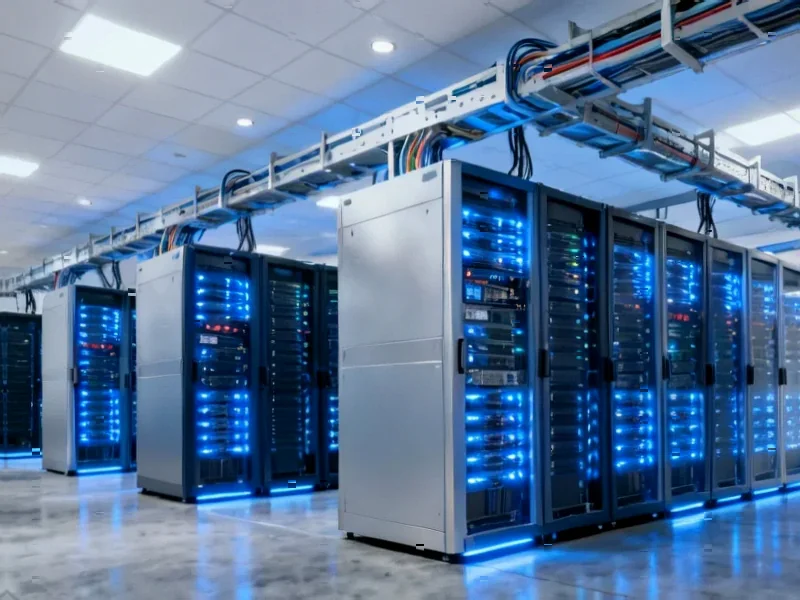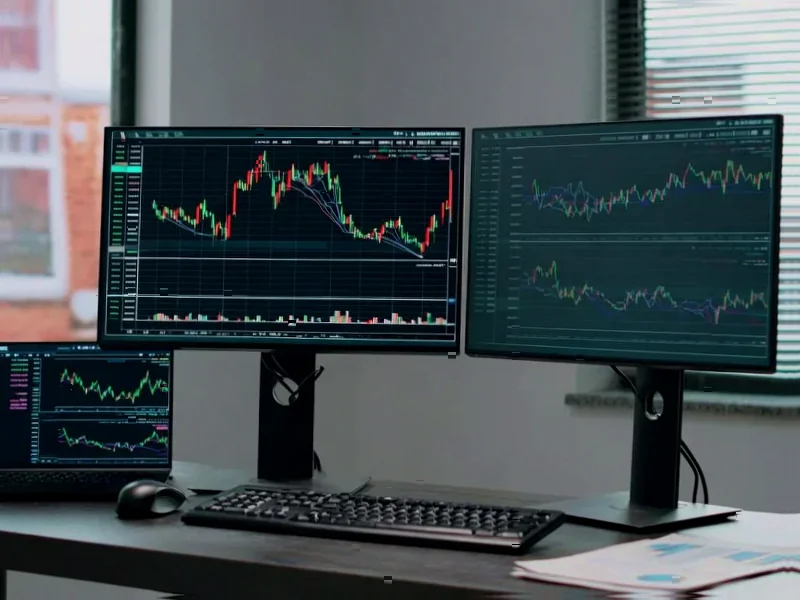According to Financial Times News, Deutsche Bank is actively exploring ways to hedge its exposure to data centers after extending billions of dollars in debt to the sector to keep up with AI and cloud computing demand. The German lender is considering shorting a basket of AI-related stocks and buying default protection through synthetic risk transfer derivatives. Deutsche has provided debt financing to companies like Swedish group EcoDataCenter and Canadian firm 5C, who together raised over $1 billion for expansion. Executives inside the bank have discussed managing exposure as hyperscalers pour hundreds of billions into AI infrastructure, with total cost estimates reaching $3 trillion through the end of the decade. The bank’s investment banking business has “bet big” on data center financing, though it doesn’t break down exact lending amounts beyond estimates in the billions.
Bubble trouble déjà vu
Here’s the thing that should make everyone nervous: we’ve seen this movie before. The scale of expenditure on AI infrastructure has skeptics pointing out the eerie similarities to the dotcom crash era. Billions are being deployed in what’s essentially an untested industry with assets that depreciate rapidly due to technological change. And Deutsche Bank’s own analysts tried to downplay these concerns in late September by using AI to analyze mentions of an “AI bubble” in English publications, concluding that “one AI bubble has already burst — the bubble in saying there’s a bubble.” That’s some serious cognitive dissonance when your own institution is simultaneously preparing hedges against the very sector you’re publicly defending.
The hedging headaches
Now, the practical problem Deutsche faces is that hedging this exposure won’t be easy or cheap. Shorting a basket of AI-related stocks in a booming market? That’s going to be expensive as hell. Meanwhile, synthetic risk transfer transactions require a diversified pool of loans to earn a rating, and investors will likely demand higher premiums to insure against defaults. Basically, the bank might be discovering that getting into this massive lending spree was the easy part – getting out safely is where the real challenge begins. It’s like they’ve built this enormous position and only now are asking, “Wait, how do we actually manage the risk here?”
The European gold rush
And this isn’t just a Deutsche problem – Europe is expecting a wave of dealmaking and consolidation in digital infrastructure as companies race to acquire and develop sites. The bank’s asset management arm DWS was reportedly preparing the sale of its data center business at a hoped-for €2 billion valuation back in September. But here’s the question: if Deutsche is so confident in the sector’s long-term prospects, why are they simultaneously trying to hedge their exposure and potentially exit their own data center investments? The mixed signals are hard to ignore. You can’t on one hand talk about $3 trillion in projected spending through 2030 while quietly building your escape routes.
Secured but still scary
To be fair, Deutsche has apparently lent predominantly to businesses that service hyperscalers like Alphabet, Microsoft, and Amazon, with debt secured against long-term contracts promising steady returns. That sounds reassuring until you remember that long-term contracts don’t mean much if the underlying business model collapses. Look at what happened during the dotcom bust – plenty of companies had “solid” contracts too. The rapid pace of technological change means today’s cutting-edge data center could be tomorrow’s expensive paperweight. And with Deutsche’s own research showing such intense focus on bubble talk analysis, it’s clear the anxiety is real even if they’re trying to downplay it publicly.




